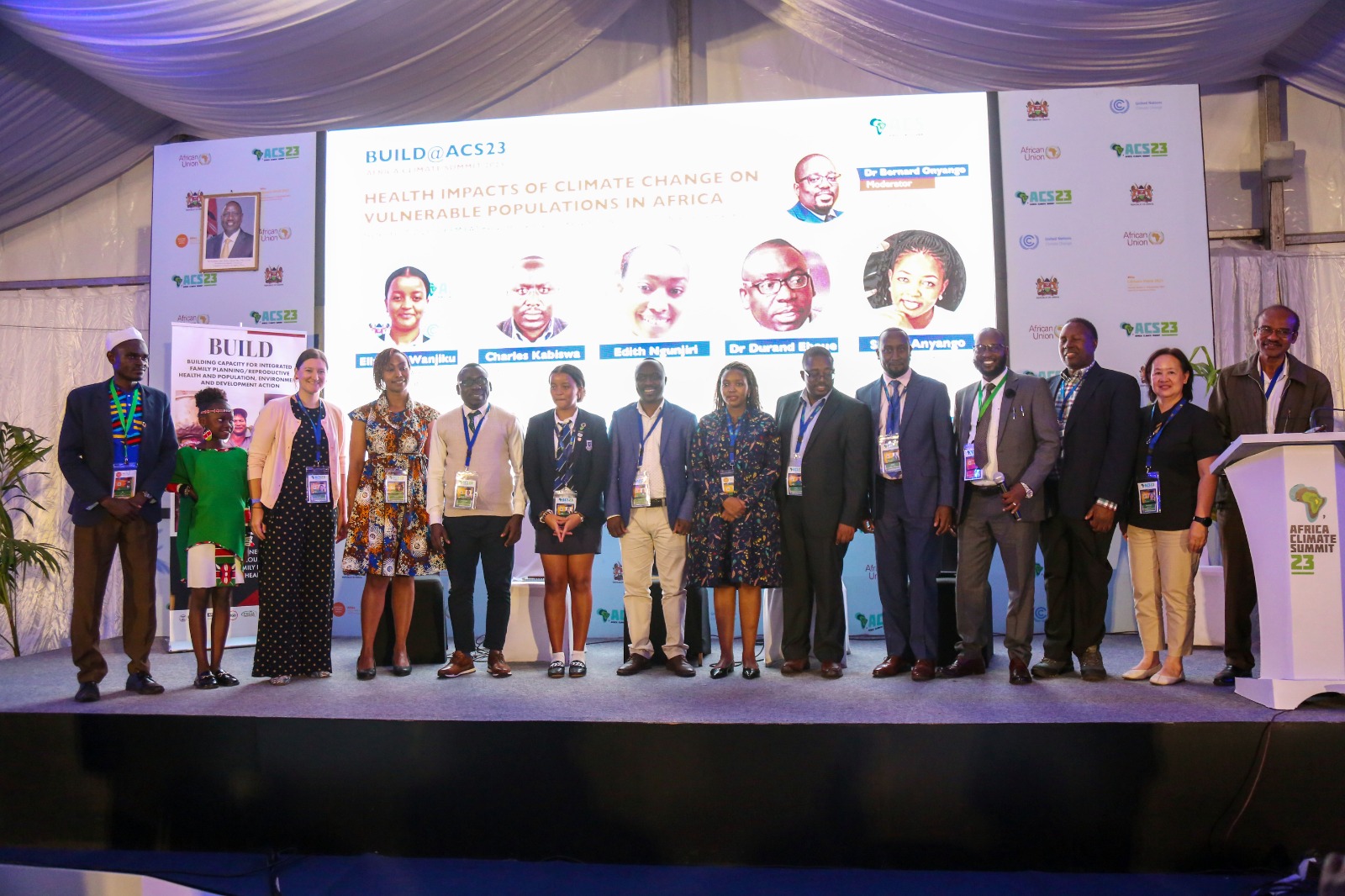Blogs

By Winnie Shella
The “African Leaders Nairobi Declaration on Climate Change and Call to Action” is a formal statement and call to action by African leaders regarding climate change. In this declaration, African leaders express their concerns about the severe impacts of climate change on the continent, including unpredictable weather events, prolonged droughts, devastating floods, and wildfires.
The declaration is primarily focused on climate change, its impact on African economies, societies, and ecosystems, as well as the potential for Africa to contribute to global climate solutions. It also focuses on climate change mitigation and adaptation, financial commitments, and the call for global action to address climate change.
There is no explicit mention of health-related issues in Nairobi declaration. Health is mentioned once on page 2, paragraph 6 as one area that is impacted by issues of climate change.
The declaration has a section where commitments are made. On this section there are several references to policies and actions related to climate change and environmental sustainability. While the text doesn’t explicitly mention health, one of the policies that the declaration commits to accelerate implementation (paragraph 36 on page 5) is the African Union Climate Change and Resilient Development Strategy and Action Plan (2022-2032). This plan highlights issues of health in regards to climate change and some of the suggested actions in regards to health is:
- Mainstream climate change considerations (including gender, youth and indigenous knowledge considerations) and updated NDC policy actions across sectoral policies, including national development plans, water, agriculture, health, energy, human settlements, environment, transport and infrastructure, utilizing an open and transparent engagement process with stakeholders
- Encourage the adoption of improved stoves and modern cooking fuels. This reduces cooking time (alleviating women’s time-poverty), greenhouse gas emissions, and health
- Encourage cross-sectoral approaches to adaptation planning that emphasize reducing risk across interconnected sectors affected by climate change, such as the water-energyfood nexus and the biodiversity-health
In conclusion, the declaration calls for action and focuses on international climate action, finance, and cooperation. While it discusses the need for global leaders to appreciate the opportunity to contribute to equality and shared prosperity through decarbonizing the global economy, it does not explicitly mention health-related issues.
This however provides the BUILD Project Consortium members to heighten their policy influencing engagements based on coalition and partnership building so that matters of health, specifically matters on reproductive health and voluntary family planning gain a foothold in climate change discussions and actions at grassroot, national and international levels.

